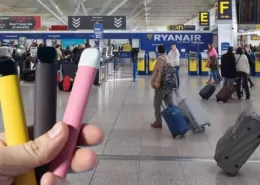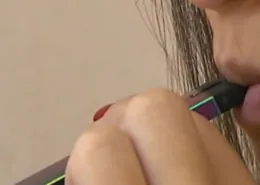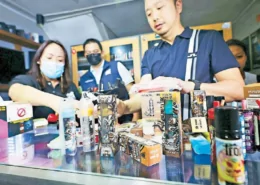North Africa Vape Regulations Update: Evolving Landscape
North African countries are gradually warming up to the concept of tobacco harm reduction, acknowledging the potential role of alternative nicotine products in mitigating smoking-related health issues. Morocco, Algeria, and Egypt are among the nations considering harm reduction strategies alongside traditional anti-smoking initiatives. While the region’s stance on vaping products varies by country, it is generally characterized by cautious regulation.
Stringent Regulations in Egypt and Algeria
Egypt and Algeria have traditionally imposed strict regulations on tobacco products, including high taxes and advertising bans, to curb tobacco use and its associated health impacts. The introduction of alternative nicotine products, such as vapes, has prompted interest in harm reduction, pushing policymakers to consider new regulatory frameworks.
In Egypt, Electronic Nicotine Delivery Systems (ENDS) face stringent restrictions similar to those on traditional tobacco. The government remains cautious about these products, citing concerns over their potential appeal to youth and the lack of long-term health data. However, there is growing recognition of the potential benefits of harm reduction strategies, which may lead to regulations that make safer alternatives accessible to adult smokers.
Similarly, Algeria recognizes the potential of harm reduction but maintains strict control over the sale and advertising of vaping products, treating them similarly to traditional tobacco products. Advertising and public use are restricted, and there are stringent regulations on sales and imports to control the spread of vaping, particularly among youth, to protect public health.
Potential Changes in Tunisia
Tunisia’s vape laws are relatively strict, restricting the sale and distribution of ENDS. Advertising is banned, and public use is restricted to discourage vaping, particularly among minors. However, change may be on the horizon. In May 2023, ECigIntelligence reported that the head of the national anti-smoking program at the Ministry of Health announced the drafting of new vape regulations.

Ecigator Sticky Open Pod Kit
The Sticky Open Pod Kit is a contemporary vaping device that combines functionality with fashion. This kit is designed with a box-style form factor, offering a compact and stylish appearance that’s ideal for vaping enthusiasts on the move.
At the heart of this kit is a Refillable Open Pod System, with a capacity of 2ml, perfect for accommodating a variety of e-liquids. The pod is equipped with a high-quality Mesh Coil that not only ensures a rich and flavorful vaping experience but also boasts durability for up to 8 Refills.
Mixed Feelings in Morocco
Morocco has historically shown a more open approach, with some regulatory flexibility allowing the sale and use of ENDS. Public health advocates in the country are pushing for clearer guidelines to ensure these products are safely managed while promoting them as less harmful options for smokers. However, Health Minister Khalid Aït Taleb has recently raised concerns about the escalating use of vapes among teenagers and pledged to take decisive action to address this pressing public health issue.
A 2021 national study revealed that teenage girls aged 15 to 17 constitute the largest demographic of vapers at 5%, compared to 2% among boys in the same age group. The “MEDSPAD” study also highlighted the trend of e-cigarette experimentation among Moroccan youth, with nearly 7.7% of students having tried e-cigarettes before the age of ten, and the prevalence increasing significantly with age.
Aït Taleb emphasized the World Health Organization’s warning about targeted e-cigarette promotion campaigns directed at children through social media and influencers. He added that scientific research indicates the harmful effects of e-cigarettes, including increased cancer risk, heart and lung problems, and hindered brain development in adolescents. However, most of the studies he referred to have failed to measure the risks from vapes relative to those from cigarettes.
In response, the Ministry of Health and Social Protection in Morocco has launched a comprehensive strategy to combat teen vaping. The ministry plans to enhance healthcare professionals’ capacity through specialized training and collaborate with the Ministry of National Education on joint school health initiatives. Additionally, a helpline and support cells will be established to address teenage e-cigarette use comprehensively.
Moreover, Morocco plans to raise import duties on disposable vapes by 40% as part of the 2024 budget proposal, aiming to bring the import duty rate for disposables in line with that of other e-cigarettes for the fiscal year 2023. This measure is intended to encourage a level playing field in the ENDS market.
Conclusion
North Africa is navigating the complex landscape of tobacco control and alternative nicotine products with strict measures. While the general approach seems to be restrictive, the region is slowly opening up to the idea of balancing public health priorities with the potential benefits of harm reduction. As more research emerges and global trends shift, it remains to be seen how North African countries will adapt their policies to address the challenges and opportunities presented by vaping products.
- Cannabis and Vape Shop Workers Rank Happiest in Nation - July 31, 2025
- Richmond, VA, Restricts New Vape & Tobacco Shop Locations - July 31, 2025
- Study Finds Flavored Vape Bans Cut Vaping But May Slow Smoking Decline - July 31, 2025









